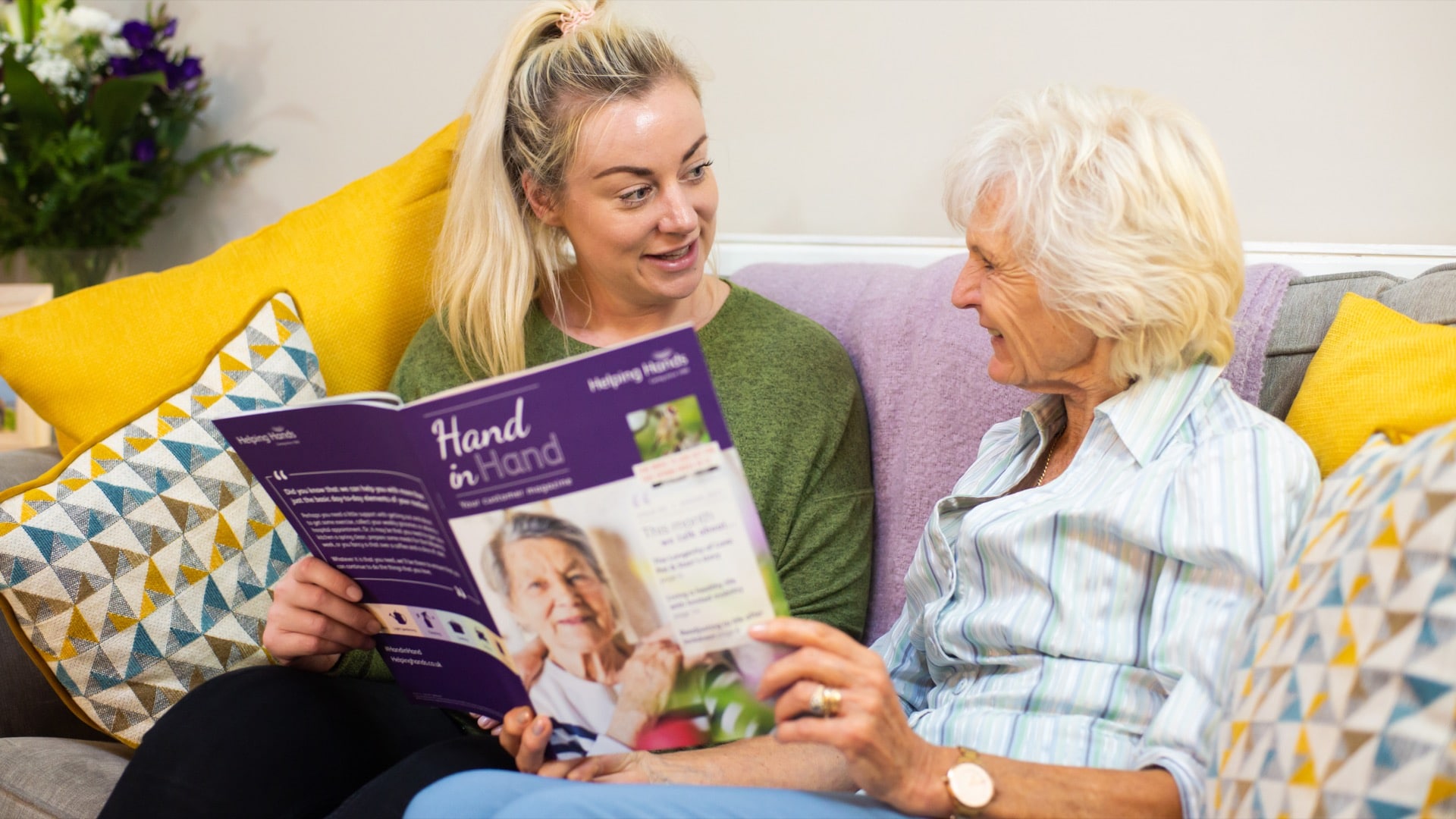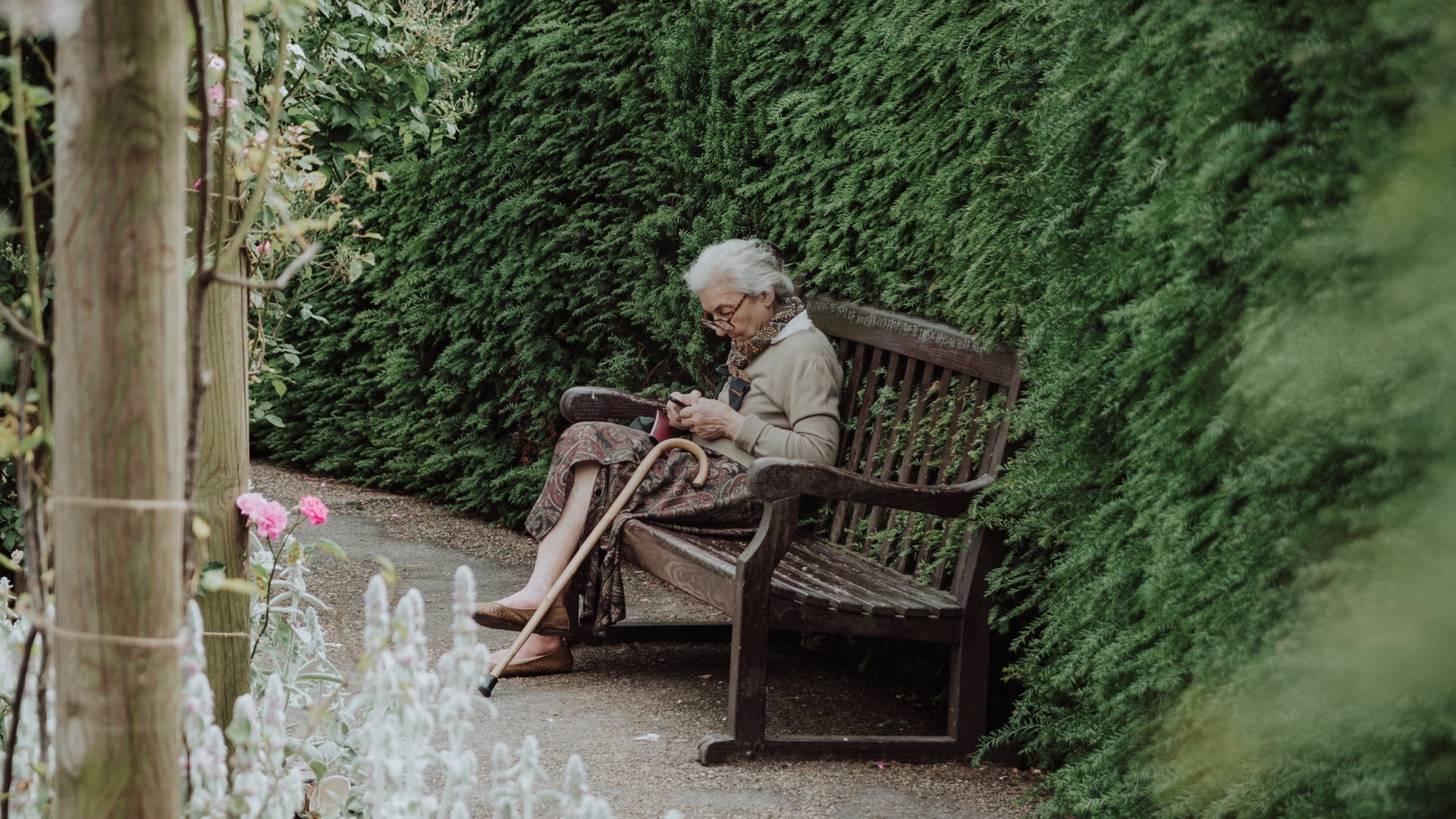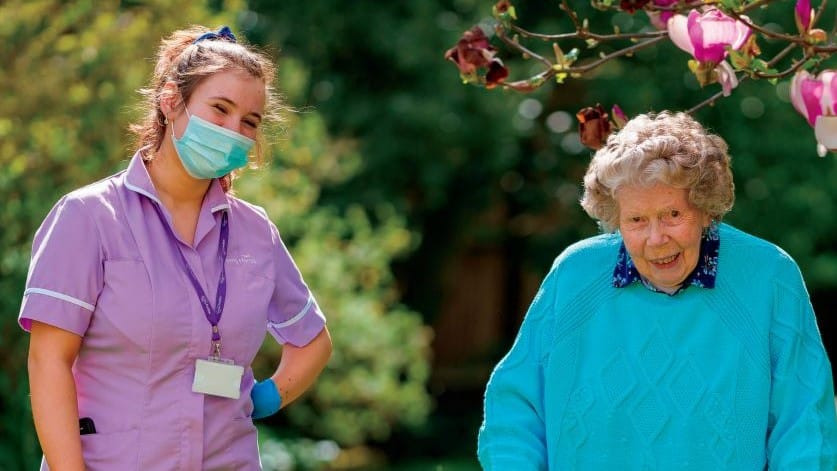The importance of reading for the elderly

The relationship between reading and the elderly
Are you looking for a new activity?
As we age, we may find it difficult to do certain activities we once enjoyed. Perhaps in your youth, you were an Olympic pole vaulter or danced the polka at every opportunity. As you age, these sorts of activities may become a little harsh on the bones. There is one activity that will never ‘get old’: reading. Getting lost in stories can be a creative stimulant, a relaxing pastime, and an outright pleasant experience. Reading is especially important in elderly care. Did you know that while you’re engrossed in the latest Stephen King novel, your brain is doing some amazing things?


While there are many positives to reading in general, it is especially helpful for the elderly. One of the biggest obstacles for elderly people is loneliness and believe it or not, reading is a great way to minimise this feeling. Immersing yourself in characters and stories within a book can create a sense of escapism that may distract from loneliness. Not only this, but reading is a great conversation starter! Book clubs are a hugely popular activity for the elderly to make friends and discuss what they’re reading that week. If that sounds like something for you, perhaps you can blow them all away and announce you’ve just completed Stephen Hawking’s ‘A Brief History of Time’.
What are some benefits of reading for the elderly?
Take a look at some of the positives you can get from reading:
Improve cognition
Reading stimulates the brain and creates new neurons, contributing to good brain function. It improves analytical and reasoning ability in the elderly which is termed ‘fluid intelligence’, which declines throughout adulthood. As you read, your ‘fluid intelligence’ is actually improving. Your brain is throbbing with new neurons the more you read!
Reduce stress
Research shows that reading helps to unwind, relax, and release muscle tension. When it comes to putting your feet up, a good read will slow the heart rate quicker than listening to music. A regular reader is less likely to act impulsively and more likely to think before reacting. This means you could be better adapted to handle the anxieties that may come with ageing.
Better sleep
Reading helps create a healthy bedtime ritual and signals to the body that it’s time to sleep. While you might love your nightly Eastenders fix, the blue light from screens hinders your ability to fall asleep. Sleep is crucial for all-around good health. Swapping this for a nightly read will help to get in your beauty sleep, which is good for the old and the young.
Delay dementia
Brain-challenging activities like reading are thought to help delay the onset of Alzheimer’s and dementia, which are common obstacles for older people. Research shows that reading throughout your lifetime helps prevent neurodegenerative conditions by building up neuron reserves in the brain. It takes much longer for the Alzheimer’s process to destroy enough neurons for symptoms to emerge.
Wellbeing
Happiness and fulfilment make it easier to deal with some of the issues that come with age. Reading can have a positive impact on mental health as it helps prevent loneliness, connects with the outside world, and creates a feeling of escapism. Re-reading favourites from your youth can bring back happy memories, like that one holiday you had as a child or the whirlwind romance you had in the 60s.
Helps memory
Reading regularly can strengthen the brain’s neural network which helps it to become more receptive to learning and memory retention. As a mental workout, reading exercises your memory and helps with the short-term recall of everyday events. As you age, you may find yourself forgetting things that could be distressing. Picking up a book helps to minimise the effects of ageing on your brain.
What are some benefits of reading to the elderly?
Stress relief
Brain workout
Sharpens focus
Boosts cognition
Increases longevity
Improves sleep
Benefits of reading for the elderly
As you’ve aged, you may be suffering from sight loss or difficulty in reading altogether. Audiobooks, which are recordings of books being read aloud, are a great alternative to paperback books for those with poor vision. You can still reap the many benefits of reading, regardless of your poor eyesight, so no need to worry!


Reading is a great activity that requires low mobility. If you’ve started to slow down a bit due to age and can no longer tango like you once did, reading is a great hobby to enjoy from your single digits to your triple ones! If you’ve slowed down a tad due to age-related frailties, pick up a novel! When reading, we familiarise ourselves with the characters and empathise with their situation. This ability allows our real-life relationships to become stronger, which will help the happiness of an elderly loved one.
So, if you or a loved one is getting on in years, reading could be their next big thing!
Helps memory
Improves wellbeing
Delays dementia
Improves cognition
Reduces stress
Better sleep
How Helping Hands can help with elderly care
At Helping Hands, we can offer bespoke live in care or visiting care to tailor to your unique needs. Whether that’s helping around the house or simply being a companion, we can be a huge help with our elderly care. We can help with fall and trip prevention, creating a daily routine or helping with discreet needs like dressing and toileting. We also offer superb condition-led care with our expertly trained staff. Being in your twilight years is something to celebrate, and our carers will help you get the best quality of life possible within your own home.